The life and work of I. M. Pei takes the top prize in this year’s awards celebrating excellence in architectural publishing
The Architects’ Company has announced I.M. Pei: Life Is Architecture as the overall winner of the 2024 Architecture Book of the Year Award. The accolade will be formally presented at the company’s annual banquet on 29 January at Merchant Taylors’ Hall.
The publication, a collaboration between Thames & Hudson and the M+ museum in Hong Kong, also won the Practice category. The judges described it as “a must for any architectural library,” praising its accessible format and strong visual presentation. .
This is the second year of the awards, which are organised by the Worshipful Company of Chartered Architects. Winners in other categories also reflected a wide spectrum of architectural discourse, ranging from detailed historical studies to technical and practical guides.
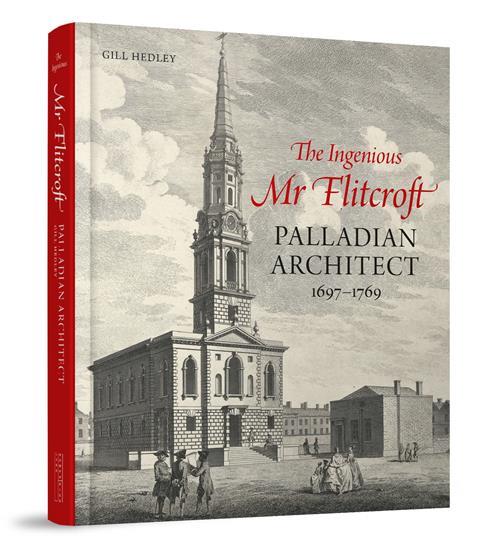
>> The Ingenious Mr Flitcroft, Palladian Architect
Andy Foster reviews a new book by Gill Hedley that explores the early eighteenth century world of architects, clients and building.
Gill Hedley’s biography The Ingenious Mr Flitcroft: Palladian Architect 1697–1769 was named the winner of the Biography category. Judges described the book as both “learned and engaging,” noting its thorough archival research and the accessible way in which it brings to life Flitcroft’s career and personal story. The book’s structural clarity, complemented by high-quality illustrations and its framing of Flitcroft’s work in a contemporary context, was particularly commended.
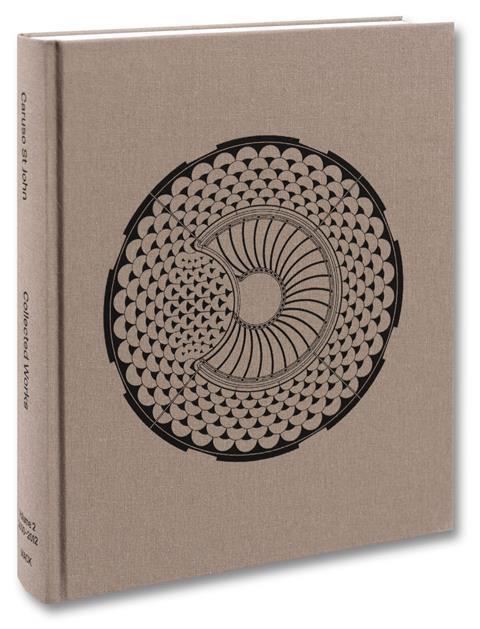
>> Caruso St John’s Collected Works, Volume 2: ‘A genuine insight into their motivations and interests’
Giles Heather finds that this latest volume of collected works sheds fresh light on the practice’s profound interest in history and alternative modernisms.
Another commendation in the Practice category went to Caruso St John: Collected Works, Volume 2, 2000–2012. Judges noted the depth of the work in explaining the roots of Caruso St John’s architectural philosophy, supported by substantial cultural and historical references.
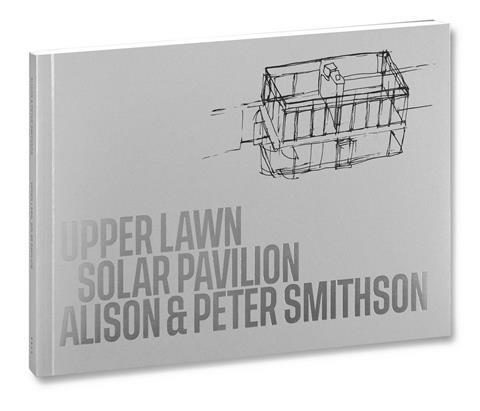
>> Upper Lawn, Solar Pavilion – ‘A book that reminds us what our profession is about’
Caroline Voet reviews an expanded edition of the 1986 book by Enric Miralles with Alison and Peter Smithson, about their Upper Lawn Solar Pavilion.
The winner of the Building category was Upper Lawn, Solar Pavilion, Alison and Peter Smithson, a revised edition of the Smithsons’ study of their Wiltshire weekend house. Originally published in 1986, the book includes new material framed by a contextual essay by Paul Clarke. Judges described the work as a “calm, poetic evocation” of the project’s conception, construction, and inhabitation.
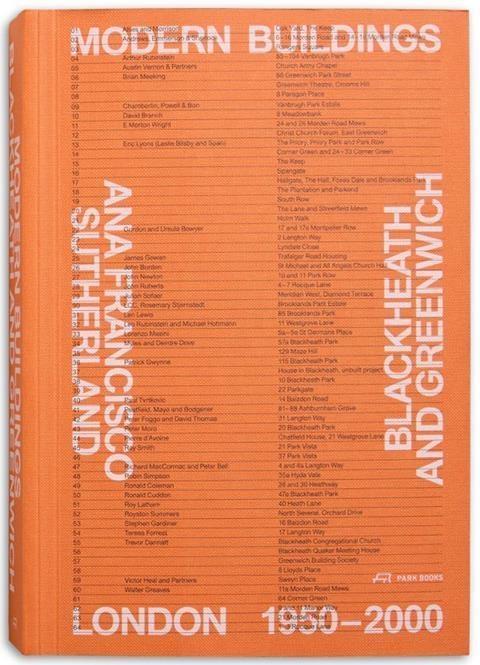
>> Modern Buildings in Blackheath and Greenwich: London 1950-2000
Ana Francisco Sutherland’s new book demonstrates compellingly how the architecture that now characterises the area is deeply rooted in the place and its history, writes Nicholas de Klerk.
Ana Francisco Sutherland’s Blackheath and Greenwich – Modern Buildings 1950–2000 won the Guide category. This comprehensive account of mid-20th-century architecture in the area was praised for its clarity, detailed plans, and ability to contextualise the buildings’ design and their relationships to the communities they serve.
In the History category, Dublin – Creation, Occupation, Destruction by Niall McCullough was recognised as an “astonishingly original” appreciation of Dublin. The posthumous publication intertwines architectural history with literary references and evocative photography. Judges noted its emotional depth and unique contribution to architectural historiography, describing it as a fitting tribute to McCullough’s career as an architect and writer.
Jeanne Gang’s The Art of Architectural Grafting was awarded the Technical category prize. The book uses the metaphor of tree grafting to explore low-carbon architectural adaptation and reuse. Judges noted its charming illustrations and practical insights, highlighting its relevance to contemporary challenges in sustainable design.
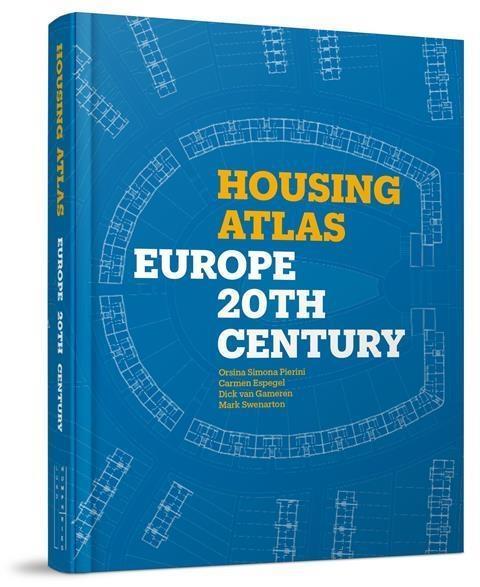
>> Housing Atlas: Europe 20th Century
This timely publication offers a reminder that the value of innovation is not in being different, but in imagining and creating new models from which others can learn, writes Bob Allies.
The Typology category was won by Housing Atlas: Europe 20th Century, authored by Orsina Simona Pierini, Carmen Espegel, Dick van Gameren, and Mark Swenarton. This meticulously produced volume examines 87 key housing projects across Europe, accompanied by specially drawn plans, sections, and elevations to consistent scales. The judges commended its ability to encourage proper understanding of these works, including their relationship to programme and place.
The awards also recognised several special publications, including Sérgio Ferro, Architecture From Below, a translated collection of essays offering critical perspectives on architecture and labour. Judges remarked on the work’s value in introducing English-speaking readers to Ferro’s ideas, which challenge architectural culture’s neglect of building labour.
Thomas Heatherwick’s Humanise: A Maker’s Guide to Building Our World also received recognition as a best-selling polemic intended to provoke public discussion on architecture’s role in shaping the built environment. Judges noted its visual impact and success in sparking wider debate.
>> Also read: Elain Harwood given posthumous recognition at inaugural Architecture Book of the Year Awards
>> Also read: Best of 2024: Building Design’s book reviews of the year
















No comments yet